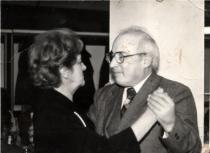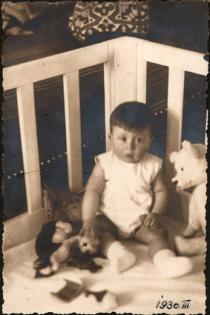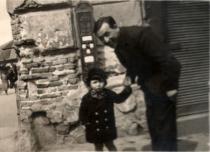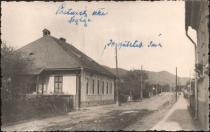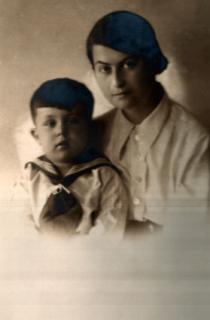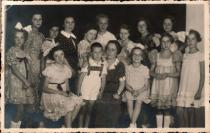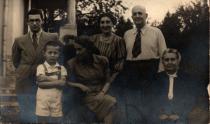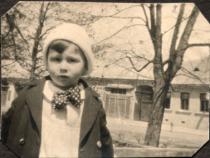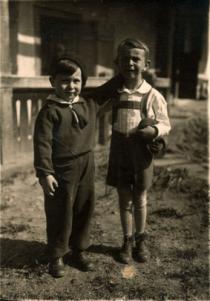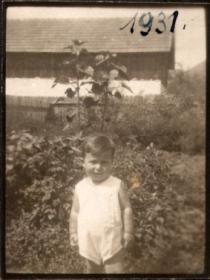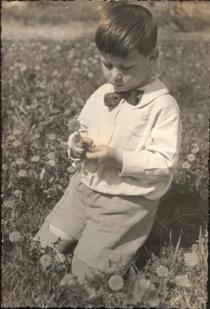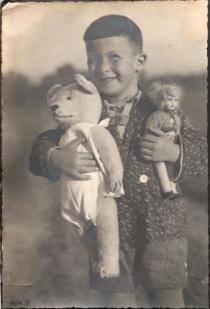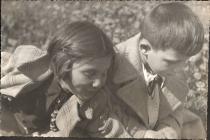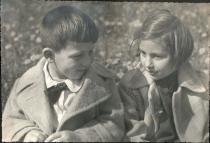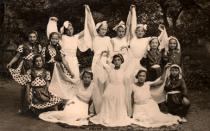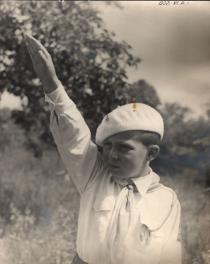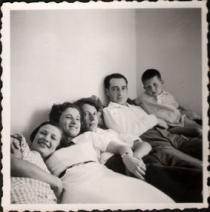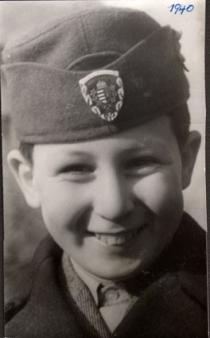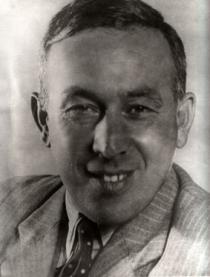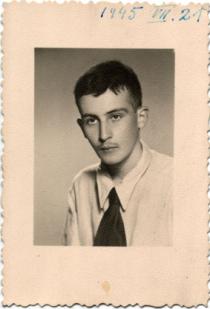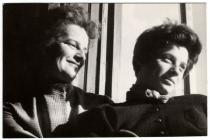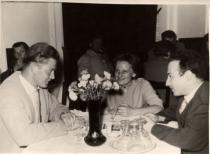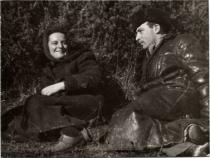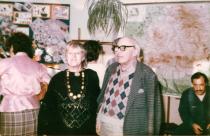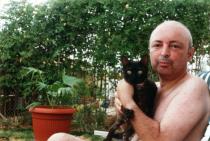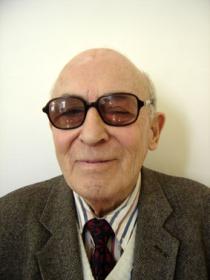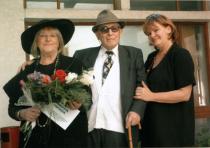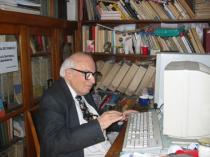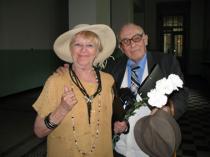This is a strange thing. I [Janos Gottlieb] am a so-called ‘guard’ - this was a patriotic children’s organisation, and everybody who attended the Romanian school, was a guard. Just like that. [
Ed. note: The ‘Strajeria’ or ‘Straja Tari’ (The Country’s Guard) organisation was established in 1937 by Carol II, the Romanian king.
The members of the paramilitary youth organisation were boys and girls of 8 to 16 years old; the aim was to educate young people to be obedient and helpful, to respect the greatness of the idea of nation.
All the other youth organisations, for example the scout organisation were merged into the Strajeria.
In 1940 the legionaries wound up the organisation.] Sometimes we gathered for an after-noon, when they read things to us, delivered speaches, nothing special happened.
This was our uniform, and my father photographed me. It is written 2nd June 1938.
I was born in 1929 in Nagybanya. In fact I didn't get any particular Jewish education, I received a rather Hungarian education at home as well.
I didn't learn to speak Hebrew, I don't speak at all. Unfortunately. It's a good thing to know one more language, but that was it.
A visiting teacher taught me to read in Hebrew, but I never understood what I was reading.
He used to come to us when I was around eight years old until I became twelve, for three or four years, but only once in a week.
Everybody spoke Hungarian with me in the family. My mother tongue is Hungarian, I didn't speak any other language until the age of five.
Later my father, who obviously had a German education, hired a fraulein for me, according to the customs of those times, and that's how I learnt German.
I think I was five, this was after my mother died. And I got to learn Romanian only when I was six and a half, when my father simply enrolled me to a Romanian school saying: 'You have to learn Romanian, because we live in Romania.'
And he was right. In Nagybanya there wasn't any Jewish school, only a cheder.
There was a Hungarian school belonging to the Calvinist church, but he didn't send me there.
So I finished primary school in the Romanian public school.
I finished four years of primary school in Romanian, one year of gymnasium, then in the 1940s Hungarians came in, and after that I learned in Hungarian, then at the university too.
God knows how it worked back then, but I did have all kind of friends: Jews - but just a few -, Hungarians, Romanians.
We got along well with everybody, we mixed with everybody; nationality or religious affiliation didn't mean a problem.
Nationality and religion was everyone's own business. Especially after I learnt Romanian at the age of six, being in contact with Romanian children didn't have any obstacles.
I was very distressed when I saw they were instigating people of different nationality against each other - for this is the truth. I experienced incitement in my childhood already.
There were Hungarians, who were against Romanians, and Romanians, who didn't like Hungarians. I don't know why, because one can not be against one nation.
You can be against a person, yes, but not against a nation. That's it. And anti-Semitism started to be present in the 1940s, I was already eleven years old.
I had Hungarian friends, I even had friends who came to Nagybanya from Hungary, when North-Transylvania belonged to Hungary, and I got along well with them too, there wasn't any problem.
I couldn't say they were anti-Semite. However, there were people who always talked badly of Jews.

